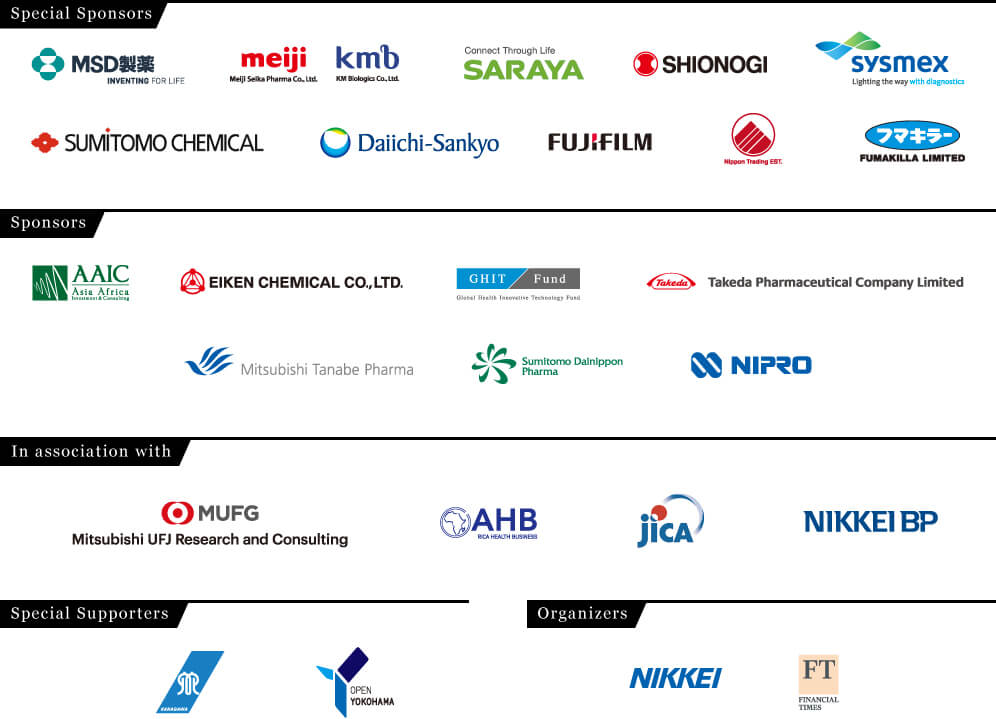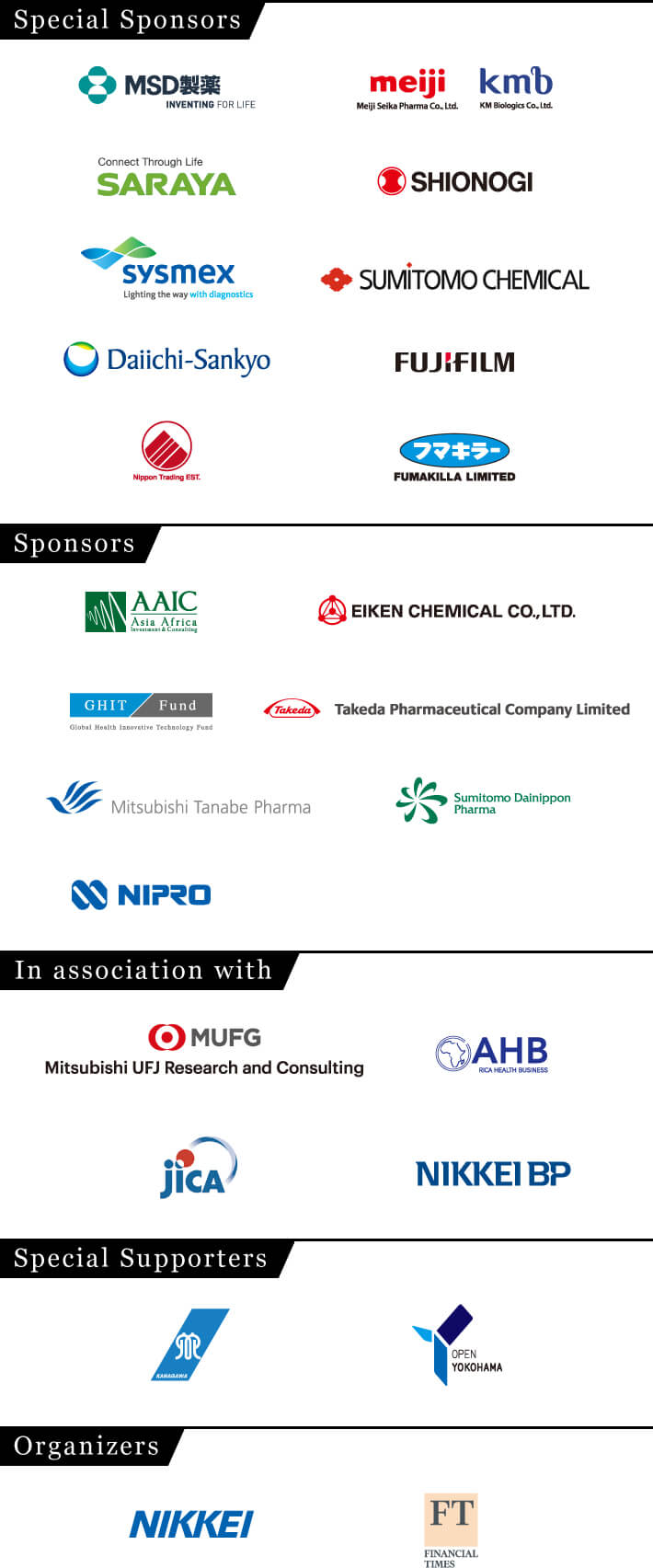- OVERVIEW
- SPEECH & TALK SESSION
- AGENDA
-
INTERVIEW
- Dr. Kenji Shuto / Vice Governor, Kanagawa Prefecture
- Mr. Toru Tanzawa / Vice President Vaccine Business Department, DAIICHI SANKYO CO., LTD.
- Mr. Koichi Yamada / Manager, Pharmaceutical Division, FUJIFILM Corporation; Assistant to President, FUJIFILM Toyama Chemical Co., Ltd.
- Mr. Toshiaki Muramoto / Director, International planning department manager and in charge of Fumakilla Vietnam operation Fumakilla Limited President, Fumakilla Vietnam Pte.,Ltd.
- Mr. Ikuo Takizawa / Deputy Director General, Human Development Department, Japan International Cooperation Agency
- Mr. Daikichiro Kobayashi / President and Representative Director, Meiji Seika Pharma Co., Ltd.
- Mr. Michikazu Koshiba / Head, Center on Global Health Architecture, Mitsubishi UFJ Research and Consulting Co., Ltd.
- Takeo Morooka, MD, MPH / Executive Officer, Head of Health Policy and Corporate Support, MSD K.K
- Mr. Takeo Hojo / Saraya Co., Ltd. Global Operations Div General Manager Saraya Manufacturing (U) Ltd. Managing Director / Saraya Kenya Co., Ltd. Managing Director
- Ms. Takuko Sawada / Director of the Board, Executive Vice President, Shionogi & Co., Ltd.
- Mr. Ray Nishimoto / Executive Vice President (Health and Crop Sciences Sector), Sumitomo Chemical Company, Ltd.
- Mr. Hiroshi Kanda / Member of the Managing Board and Senior Executive Officer, Managing Director IVD Business Unit, Sysmex Corporation
- Mr. Susumu Tsubaki / Representative Director/CEO,Asia Africa Investment and Consulting Pte. Ltd.(AAIC)
INTERVIEW
INTERVIEW 1
It is my hope that this conference leads to new innovations in the field of communicable diseases
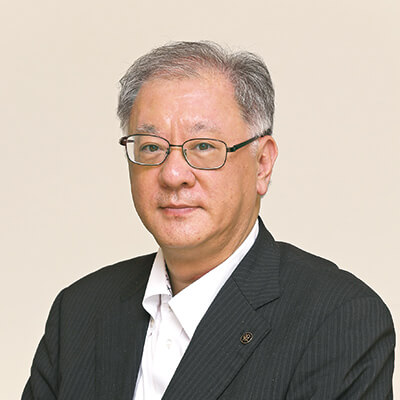
Dr. Kenji Shuto
Vice Governor, Kanagawa Prefecture
During this conference I attended the session discussing strategy for controlling new strains of influenza, as Kanagawa prefecture is currently working to promote action plans for combating new influenza strains and other infectious diseases. The session featured discussion on how to construct innovative societal models in areas such as remote medical treatment and health monitoring, development of testing kits, and drug delivery. In addition to the development of technology and construction of societal systems, on the social innovation side promoting a change in mindset among citizens of what constitutes “common sense” is key. As crisis management of communicable diseases also requires administrators to constantly be open to trying bold ideas, efforts in this area can certainly be considered innovation drivers.
It is wonderful to see Japan taking a leadership role in efforts to combat communicable diseases - where international cooperation is of utmost importance - through initiatives such as this conference. While the discussion during this conference took place in Yokohama, Kanagawa, I hope that future events will continue to give birth to new innovations in the field of communicable diseases.
INTERVIEW 2
Controlling communicable diseases requires discussion backed by action from stakeholders in Japan and overseas
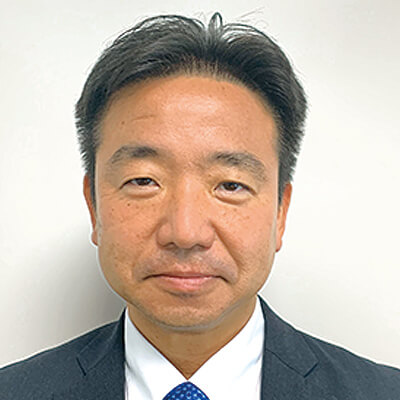
Mr. Toru Tanzawa
Vice President Vaccine Business Department,
DAIICHI SANKYO CO., LTD.
Although ensuring that everyone is vaccinated to achieve "herd immunity" is critical in order to eradicate communicable diseases or prevent pandemics from occurring, vaccine hesitancy, which occurs for a number of reasons, presents a hurdle to this goal. During the conference, we discussed the root causes of vaccine hesitancy and how to resolve them, and release a message aiming at facilitating people’s behavioral change toward strong desire of vaccination.
As one of Japan’s pandemic countermeasures adopted in response to the worldwide spread of a new influenza strain in 2009, Daiichi Sankyo has worked to construct a framework for supplying vaccine for new influenza strains in the event of a pandemic. In addition, we are working to improve Japan's health and hygiene by supplying a range of vaccines, primarily seasonal influenza HA vaccines. I hope that this conference, which brings together a range of stakeholders working to control the spread of communicable diseases both in Japan and overseas, will serve to further vaccination, thereby protecting people around the world from communicable diseases.
INTERVIEW 3
The field of communicable diseases still holds opportunity for innovation
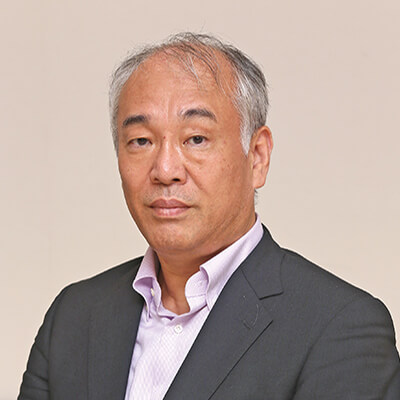
Mr. Koichi Yamada
Manager, Pharmaceutical Division,
FUJIFILM Corporation;
Assistant to President,
FUJIFILM Toyama Chemical Co., Ltd.
Fujifilm's pharmaceutical business has long positioned the diagnosis and treatment of communicable diseases as a key field of focus. As part of this focus, we have striven to develop a broad range of new drugs targeting communicable diseases, including antibacterial, antiviral, and antifungal drugs. At this conference, we reported that research demonstrates the anti-influenza drug developed by Fujifilm has activity against Ebola virus, and that we are working to utilize this antiviral drug to combat severe fever with thrombocytopenia syndrome (SFTS).
Whenever I participate in this conference I am reminded - visually - of the fact that the fight against communicable disease has no borders. I also strongly feel that Japanese technology must be utilized without a moment’s hesitation to help resolve global issues. The field of communicable diseases still has several targets that can be pursued from both a scientific and business perspective. Going forward, we will maintain a keen awareness of how we can contribute to society while further enhancing our field work to develop solutions that can be applied in the future.
INTERVIEW 4
Hoping to further discussion on how to establish appropriate insecticide-related laws
and ensure their strict operation
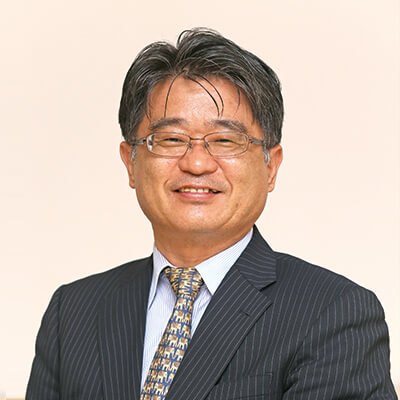
Mr. Toshiaki Muramoto
Director, International planning
department manager and in charge
of Fumakilla Vietnam operation
Fumakilla Limited President,
Fumakilla Vietnam Pte.,Ltd.
Fumakilla's company mission is to protect people's lives - in the broad sense of the word. As part of this, we are focusing on providing support for public health and hygiene outside Japan, primarily through insecticides. The use of insecticide is extremely critical in controlling communicable diseases, particularly mosquito-borne ones, such as malaria, Zika virus disease, and dengue fever.
Malaria used to exist in Japan, and Japanese encephalitis was also used to be a problem. Accordingly, in 1920 we released our proprietary high-strength Fumakilla solution for general use - a world first. Since then, we have utilized the knowledge accumulated over our history to operate successful businesses in ASEAN nations. As we would like to utilize our expertise in Africa and other regions going forward, I participated in the Nikkei conference for the first time. Although the sustainable development of high-quality insecticides is essential as a countermeasure against mosquitoes, the establishment and administration of appropriate laws and regulations is also necessary. I hope that this conference, which brings together those from industry, government, and academia, will help accelerate discussion of these matters.
INTERVIEW 5
Efforts are needed for sustainable capacity development of low income countries in communicable disease response
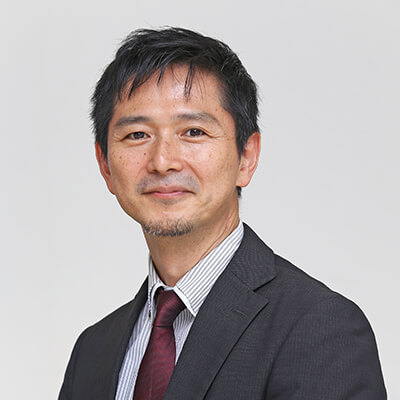
Mr. Ikuo Takizawa
Deputy Director General,
Human Development Department,
Japan International Cooperation Agency
Among the health problems faced in developing countries, communicable diseases are a major issue that JICA has been striving to combat for many years. We supported establishment of institutions such as Kenya Medical Research Institute and Ghana’s Noguchi Memorial Institute for Medical Research since the late 1970s, and the School of Veterinary Medicine and the Virology Laboratory at the University of Zambia since the 1980s, by combining construction of the facilities and technical cooperation for human resource development. JICA also supported Research Institute for Tropical Medicine in the Philippines and National Institute of Hygiene and Epidemiology in Vietnam and others.
The laureates of the third Hideyo Noguchi Africa Prize, Dr. Muyembe-Tamfum and Dr. Omaswa also emphasized in their keynote speeches that underlying problems would not be solved without establishing sound health systems. It is encouraging that the infectious disease control in Africa, which used to attract limited numbers of professionals in Japan, has expanded to industry-government-academia collaboration. I hope that this momentum created by the forum leads to the enhancement of sustainable measures to combat communicable diseases in Africa.
INTERVIEW 6
Hopes for more strong communicable disease control systems in Asia and Africa
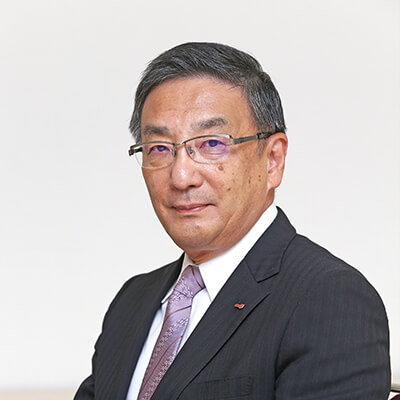
Mr. Daikichiro Kobayashi
President and Representative Director,
Meiji Seika Pharma Co., Ltd.
The risk of infection by AMR bacteria is increasing in Asia and Africa - regions whose populations are forecast to grow significantly - and the construction of a system for controlling infection is an urgent task. However, the number of companies developing the new antibiotics or vaccines that will constitute the weapons against such communicable diseases are on the decline due to the factors such as low viability from a business perspective and strictly specified manufacturing regulations. Without new development, the risk posed by AMR and other communicable diseases will continue to steadily increase. Additionally, a “one health” approach that also considers zoonosis is essential to fight against AMR.
Meiji Seika Pharma has been involved in the manufacture of antibiotic medication for more than 70 years. Thus far, we have supplied more than 30 types of antibiotic for human or animal use, and we aim to continue contributing to the development of new antibiotics and AMR countermeasures going forward. However, the control of communicable diseases cannot be achieved by a single country or company alone. I hope that the participants at this conference will unify and form partnerships to conduct long-term, broad-ranging epidemiological surveys and information-sharing initiatives, and to construct stronger systems for controlling communicable diseases in Asia and Africa.
INTERVIEW 7
Achieving a health system transformation by utilizing new digital technologies such as AI
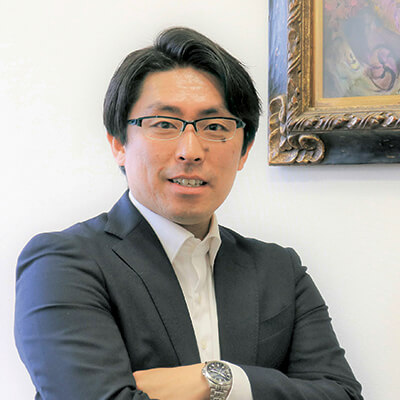
Mr. Michikazu Koshiba
Head, Center on Global Health Architecture,
Mitsubishi UFJ Research and
Consulting Co., Ltd.
Mitsubishi UFJ Research and Consulting is currently working on two initiatives. The first is working to develop game-changing technology-based solutions to communicable diseases with ambitious and motivated partners. The second is supporting the creation of global healthcare policies and helping set global agendas. On the technology side, we support Gavi, which is working to promote vaccination, and the digital healthcare projects of STBP, which is working to combat tuberculosis, as well as taking on the new challenge of implementing new services for combating AMR on the societal level in partnership with a Malaysian AI startup. We are also involved in innovating access and delivery through the reform of supply chains and digitalization of public procurement systems, and are working on business development with UN trading houses in Europe to develop an environment that enables Japanese companies to participate in UN procurement. Although it is important to further strengthen existing health systems, I believe that it is also critical to pursue a “health system transformation” through the utilization of technology, with the aim of combating communicable diseases and realizing universal health coverage.
INTERVIEW 8
Systems to support the continued development of new antibiotics are needed
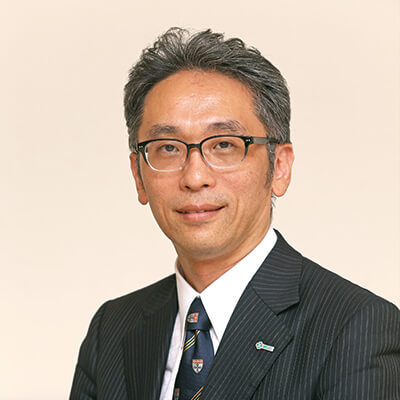
Takeo Morooka, MD, MPH
Executive Officer,
Head of Health Policy and Corporate Support,
MSD K.K
MSD KK has invested in the field of communicable diseases over a span of more than 80 years, working not only to develop new drugs, but also to promote the proper use of antibiotics and to improve patient access to medication. Although development of new antibiotics is a key to combating AMR, from an appropriate usage perspective there are restrictions on the amount that can be used, and supply forecasting is a major challenge due to the difficulty in predicting when and how an outbreak of the target infection may occur. Furthermore, as prices for new drugs tend to be set low at time of release based on prices for existing antibiotics, the conventional drug cycle - in which profits obtained from the sale of newly developed drugs are reinvested into new R&D - does not function effectively in this field. The current reality is that many pharmaceutical companies are withdrawing from the antibiotic market, and unless this situation changes there is a likelihood that we will face a future crisis. Given these circumstances, the introduction of systems to support the development of new antibiotics continuously is an urgent task, and one which I believe will require collaboration between industry, government, academia, and the public to address.
INTERVIEW 9
Innovation is possible if industry, academia and government pool their collective knowledge
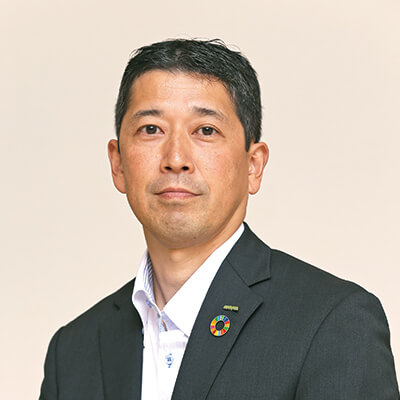
Mr. Takeo Hojo
Saraya Co., Ltd. Global Operations
Div General Manager
Saraya Manufacturing (U) Ltd.
Managing Director /
Saraya Kenya Co., Ltd.
Managing Director
Saraya was founded in 1952, and at the time developed Japan’s first medical soap dispenser. Over more than 60 years since, our business has focused primarily on hand hygiene.
At this year’s conference, we organized a breakout session to discuss countermeasures against jigger infestation in sub-Saharan Africa. This disease, which is communicable and known as tungiasis, has not yet been listed in the World Health Organization (WHO) Neglected Tropical Diseases (NTDs), and awareness of it is extremely low. We became aware of this disease during the course of providing disinfectant in the region, and are currently working to develop curative medication. However, as preventive measures and improvement of environmental factors are also necessary, during the breakout session we asked participants for their cooperation. Although these initiatives will not immediately lead to business opportunities, I am certain that innovation can be achieved if industry, government, and academia collaborate to pool their collective knowledge. I hope that this conference will serve as a forum for generating these types of actions on an ongoing basis.
INTERVIEW 10
We will maintain our focus despite a difficult environment for new antibiotic development
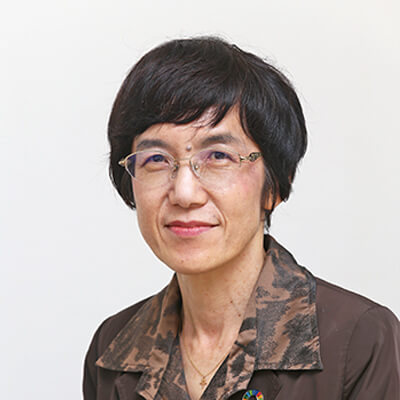
Ms. Takuko Sawada
Director of the Board,
Executive Vice President,
Shionogi & Co., Ltd.
The development of new antibiotics was raised as one of the key agendas of the conference, and the urgency of response measures against AMR has been repeatedly stressed by the WHO and other international institutions as a particular concern. However, the development of new antibiotics carries a high burden in terms of both the cost and risk involved, as it requires independent facilities, precise and strict disposal of waste liquids, and continued new development in response to changes in antimicrobial susceptibility. Furthermore, the increase in cheap generic drugs and resulting collapse in prices has further decreased the field’s attractiveness to investors.
While “push” incentives (e.g., subsidies for R&D) and “pull”incentives (market-entry rewards, transferable exclusivity vouchers, and government purchases, in addition to value-based pricing and reimbursement initiatives, etc.) need to be considered to resolve this situation, through this conference we aim to promote a sound awareness of the issues facing new antibiotic development and the need to create a healthy market environment, while working to create a compelling R&D environment that attracts young researchers to the field of antibiotic development.
INTERVIEW 11
Contributing to the eradication of malaria through partnerships with diagnostic and curative drug manufacturers
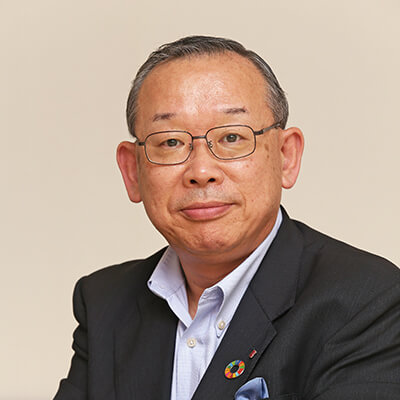
Mr. Ray Nishimoto
Executive Vice President
(Health and Crop Sciences Sector),
Sumitomo Chemical Company, Ltd.
Ever since successfully synthesizing insecticide in 1953, Sumitomo Chemical has tackled a wide range of public health and hygiene-related fields based on our philosophy of contributing to society through our business. To this end, during the 1970s we provided insecticide to combat malaria in Africa, while in the late 1980s we developed and supplied Long Lasting Insecticidal Nets (LLINs) in line with the WHO’s strategy. The WHO has set a target of reducing patient numbers and mortality from malaria by more than 90 percent by the year 2030. However, the long-term use of similar insecticides has led to the emergence of insecticide-resistant mosquitoes. Fortunately we have successfully developed a new chemical class of insecticide, which was prequalified for vector control use by the WHO two years ago. Development of diagnostic and curative drugs for malaria is also progressing, and I hope to work with the companies developing these technologies in order to continue contributing to the control of malaria going forward. Whenever I have the opportunity to attend meetings or business talks related to communicable diseases outside Japan, I am struck by the high level of interest in this conference. I hope that the Nikkei Asia Africa Conference will continue to play a key role in fighting the global spread of communicable diseases in the future.
INTERVIEW 12
Aiming to contribute to combat communicable diseases by leveraging diagnostic technology
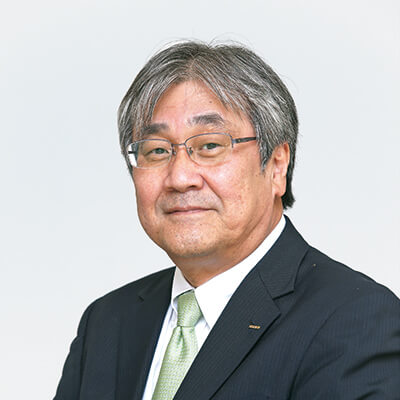
Mr. Hiroshi Kanda
Member of the Managing Board
and Senior Executive Officer,
Managing Director IVD Business Unit,
Sysmex Corporation
For many years, Sysmex has worked to develop automated analyzers for medical examinations such as hematology and urinalysis. In recent years, we have used the technological expertise cultivated over our history to develop an automated analyzer for red blood cells infected with parasites such as malaria. We introduced an overview of the analyzer not only in the last year but this year as well at the conference.
To eliminate malaria, it is critical to provide preventive measures such as mosquito nets, diagnostic methods and treatment as a total package including a system for transporting.
Although we hope to utilize our technologies in this total package, microscopic examination is still a standard means for malaria diagnosis in many regions. To change this situation, we participated in this conference once again with the aim of emphasizing the value that our automatic measurement technologies can provide. In addition to technology we developed for malaria, one of our group companies has developed blood CD4-positive lymphocyte testing systems that support HIV diagnosis and monitoring of immune state, and markets this technology in Asia and Africa. We hope to continuously contribute to the field of communicable disease diagnosis.
INTERVIEW 13
Healthcare services in Africa will change drastically
with the spread of mobile phones and smartphones
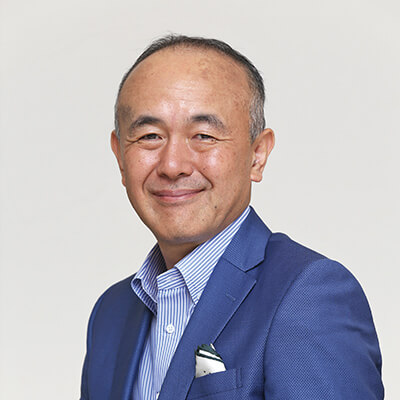
Mr. Susumu Tsubaki
Representative Director/CEO,Asia Africa
Investment and Consulting Pte. Ltd.(AAIC)
In 2013 we began a macadamia nut farming and processing operation in Rwanda as our first business in Africa. As healthcare in Africa was a key focus area for the Japanese government at TICAD 5 two conferences ago, and there was also a significant need for investment from Africa, so in 2017 we founded the Africa Healthcare Fund and commenced investment.
Mobile phones and smartphones are spreading rapidly in Africa, with the ownership rate in sub-Saharan Africa at 88 percent and expected to grow to almost 95 percent during the current fiscal year. These technologies are shaking up the healthcare business in dramatic fashion. A range of new services are emerging, such as remote diagnosis via smartphone, AI analysis of radiographic images, EC sale of medication, microinsurance, and transport of blood via drones. These digital health fields present a huge business opportunity. On the other hand, the number of fatalities in Africa from non-communicable diseases such as cancer is rapidly rising, and I am keenly interested in whether the initiatives at this conference can also be applied to non-communicable diseases.


